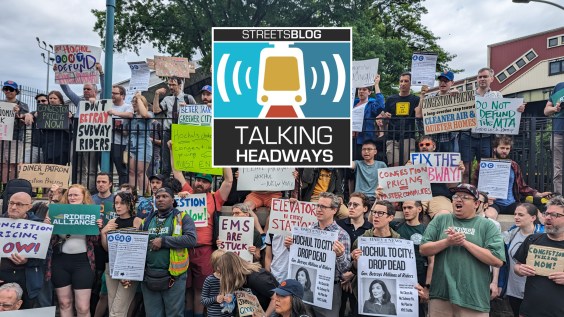This week and the next are busy ones in Sacramento. Next Friday, May 2, is the last day policy committees (e.g. Transportation and Housing) can discuss bills that require a hearing in any fiscal committees (e.g. Appropriations).
Here's Streetsblog’s weekly highlight of legislation and events related to sustainable transportation at the California capitol.
- A.B. 2398, Marc Levine (D-San Rafael): The “vulnerable road user law” that raises the fines for drivers convicted of causing bodily injury to a vulnerable road user, passed out of the Transportation Committee on a 13-0 vote. It now goes to the Appropriations Committee.
- A.B. 2337, Eric Linder (R-Corona): When a driver is convicted of a hit-and-run crash that results in death or serious injury, the DMV is required to revoke the driver’s license for one year. This bill increases the license suspension from one to two years. It passed unanimously in the Assembly Transportation Committee and then the entire Assembly this week, and now proceeds to the Senate.
- A.B. 2197, Kevin Mullin (D-South San Francisco): This bill would require the DMV to create a temporary license plate system so that new cars would be identifiable to law enforcement, toll collection agencies, crash witnesses, and hit-and-run victims. It passed the Transportation Committee on a 10-1 vote, with five Republican assembly members abstaining, and now goes to the Appropriations Committee.
- A related bill, A.B. 1864 from Tom Daly (D-Anaheim), would merely shorten the period a new vehicle can be driven without plates from 90 days to 75 days. This one passed the same committee on a unanimous vote (16-0).
- S.B. 1183, DeSaulnier (D-Concord): As Streetsblog reported earlier this week, the originally-proposed bicycle tax has become a motor vehicle registration fee. This amendment takes the bill out of the Governance and Finance Committee and gives it to the Transportation Committee, which is scheduled to hear it on April 30.
- A.B. 2173, Steven Bradford (D-Gardena): this bill would allow low-speed electric bicycles in bike lanes and paths. This could be an important accommodation for would-be bicyclists who need an assist, such as seniors, bicyclists carrying cargo, parents hauling kids, and bicyclists in hilly areas or where the route choice is between a freeway or an adjacent bike path (for example, along the causeway between Sacramento and Davis). The bill was amended this week to redefine what constitutes a “low-speed electric bicycle.” The California Bicycle Coalition would prefer a lower speed than that set in the bill, but bike advocates are general supportive.
- A.B. 1922, Jimmy Gomez (D-Los Angeles): This bill passed out of the Assembly Committee on Local Government and now goes to Appropriations. Called the Greenway Development and Sustainment Act, it would support the development of open space along rivers, including the Los Angeles River, by defining “greenway” and allowing cities to designate land as such.
For social media coverage focused on statewide issues, follow Melanie @currymel on Twitter or like our Facebook page here.






